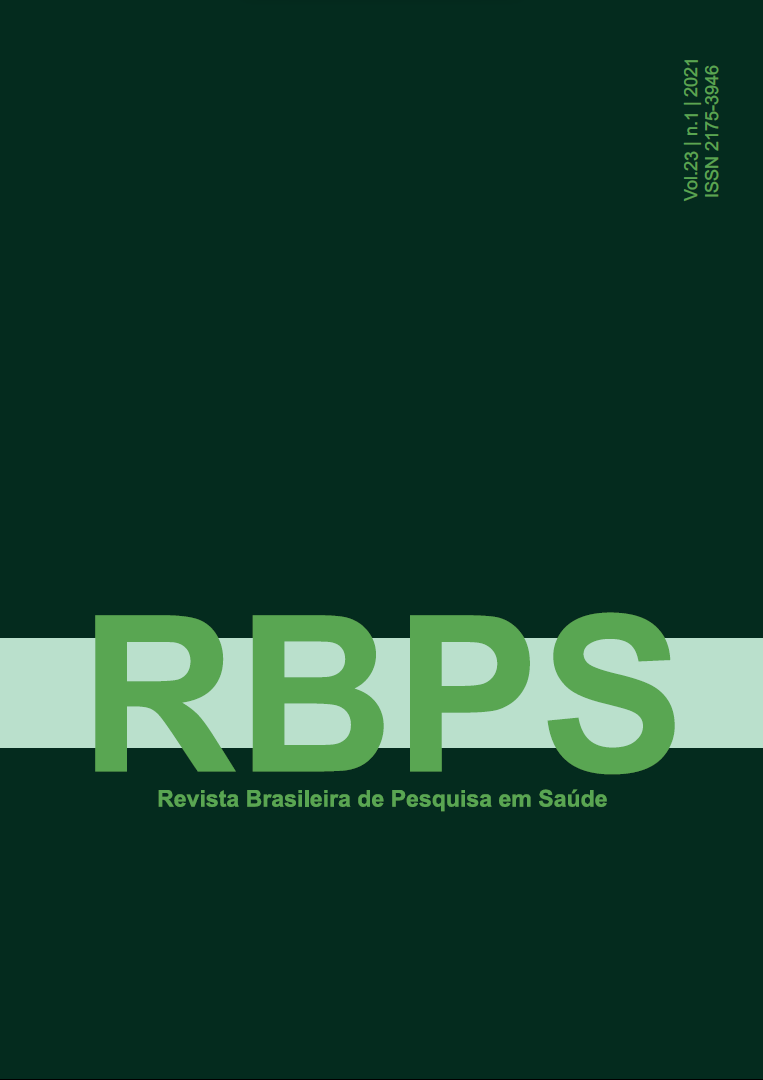Atenção Básica à Saúde: uma comparação entre a atenção pré-natal na Unidade de Saúde da Família e os serviços tradicionais
DOI:
https://doi.org/10.47456/rbps.v23i1.31787Palavras-chave:
Gestantes, Cuidado Pré-Natal, Estratégia Saúde da Família, Serviços de Saúde Materna, Sistema Único de SaúdeResumo
Introdução: O programa Estratégia Saúde da Família (ESF) é, dentro da Atenção Básica, uma porta de acesso aos serviços de saúde e neles inclui-se o pré-natal, o qual compreende cuidados que previnem, detectam precocemente e tratam eventos indesejáveis à gestação, ao parto e ao recém-nascido. Objetivos: Comparar as características socioeconômicas, demográficas, obstétricas e assistência pré-natal entre gestantes acompanhadas na Estratégia Saúde da Família (ESF) e as atendidas em outros serviços de saúde pública de São Luís – MA. Métodos: Estudo descritivo com dados da coorte BRISA, em uma amostra probabilística de 4.250 mulheres, utilizando o teste qui-quadrado. Resultados: Das mulheres, 38,2% foram assistidas pela ESF e diferiram quanto à idade e à ocupação do chefe da família. As atendidas pela ESF foram as que mais fizeram pelo menos de 4 a 6 consultas de enfermagem (p<0,001), pré-natal considerado adequado (p=0,005), as que mais receberam orientações sobre toxoplasmose (p<0,001) e amamentação (p<0,001) e receberam exame das mamas (p<0,001). Conclusão: As mulheres diferenciaram-se quanto às características socioeconômicas, demográficas e de assistência pré-natal entre os modelos de atenção.
Downloads
Downloads
Publicado
Como Citar
Edição
Seção
Licença
Copyright (c) 2021 Revista Brasileira de Pesquisa em Saúde/Brazilian Journal of Health Research

Este trabalho está licenciado sob uma licença Creative Commons Attribution-NonCommercial-NoDerivatives 4.0 International License.
A Revista Brasileira de Pesquisa em Saúde (RBPS) adota a licença CC-BY-NC 4.0, o que significa que os autores mantêm os direitos autorais de seus trabalhos submetidos à revista. Os autores são responsáveis por declarar que sua contribuição é um manuscrito original, que não foi publicado anteriormente e que não está em processo de submissão em outra revista científica simultaneamente. Ao submeter o manuscrito, os autores concedem à RBPS o direito exclusivo de primeira publicação, que passará por revisão por pares.
Os autores têm autorização para firmar contratos adicionais para distribuição não exclusiva da versão publicada pela RBPS (por exemplo, em repositórios institucionais ou como capítulo de livro), desde que seja feito o devido reconhecimento de autoria e de publicação inicial pela RBPS. Além disso, os autores são incentivados a disponibilizar seu trabalho online (por exemplo, em repositórios institucionais ou em suas páginas pessoais) após a publicação inicial na revista, com a devida citação de autoria e da publicação original pela RBPS.
Assim, de acordo com a licença CC-BY-NC 4.0, os leitores têm o direito de:
- Compartilhar — copiar e redistribuir o material em qualquer suporte ou formato;
- Adaptar — remixar, transformar, e criar a partir do material.
O licenciante não pode revogar estes direitos desde que você respeite os termos da licença. De acordo com os termos seguintes:
- Atribuição — Você deve dar o crédito apropriado, prover um link para a licença e indicar se mudanças foram feitas. Você deve fazê-lo em qualquer circunstância razoável, mas de maneira alguma que sugira ao licenciante a apoiar você ou o seu uso.
- Não Comercial — Você não pode usar o material para fins comerciais.
- Sem restrições adicionais — Você não pode aplicar termos jurídicos ou medidas de caráter tecnológico que restrinjam legalmente outros de fazerem algo que a licença permita.

























